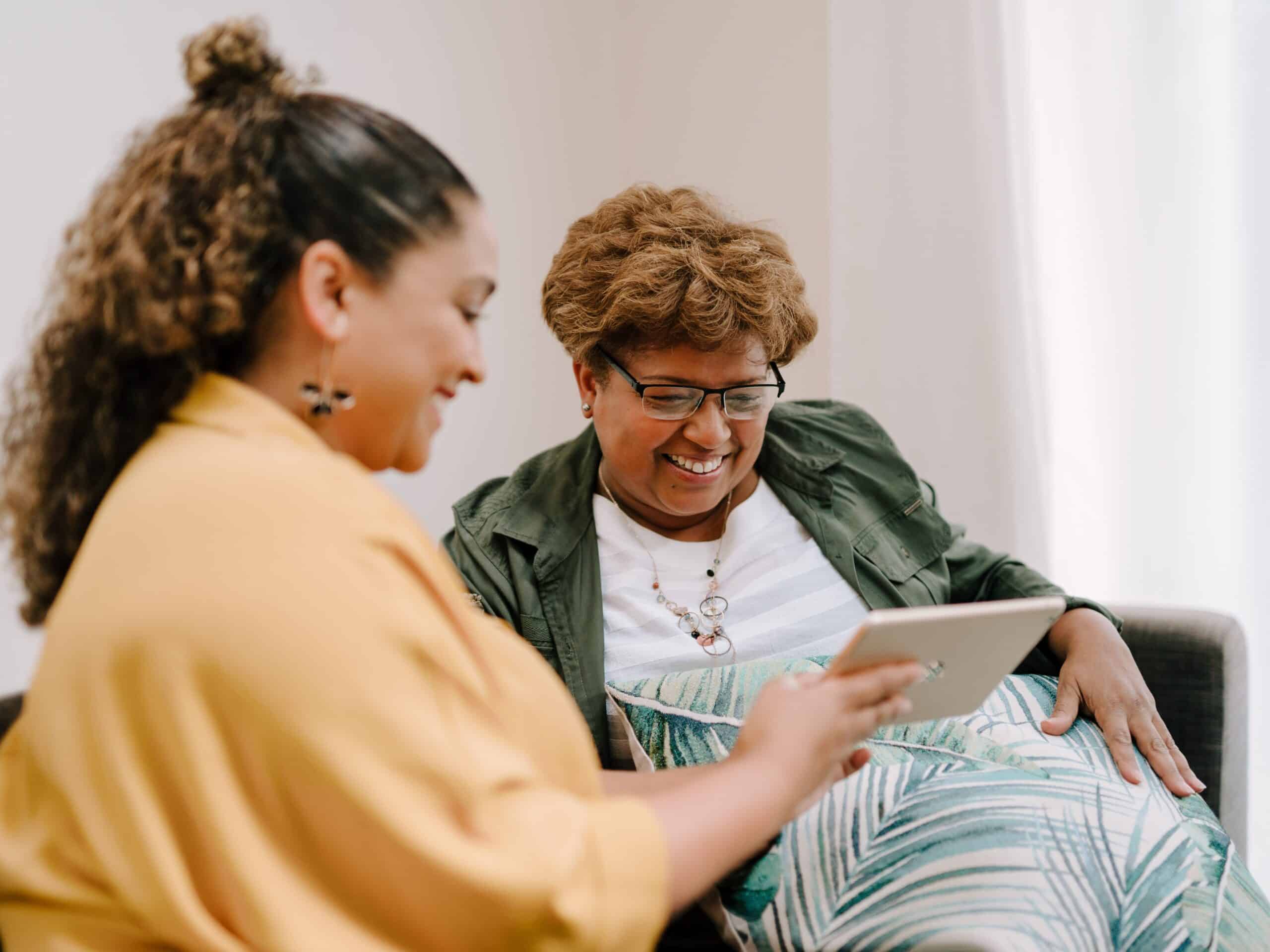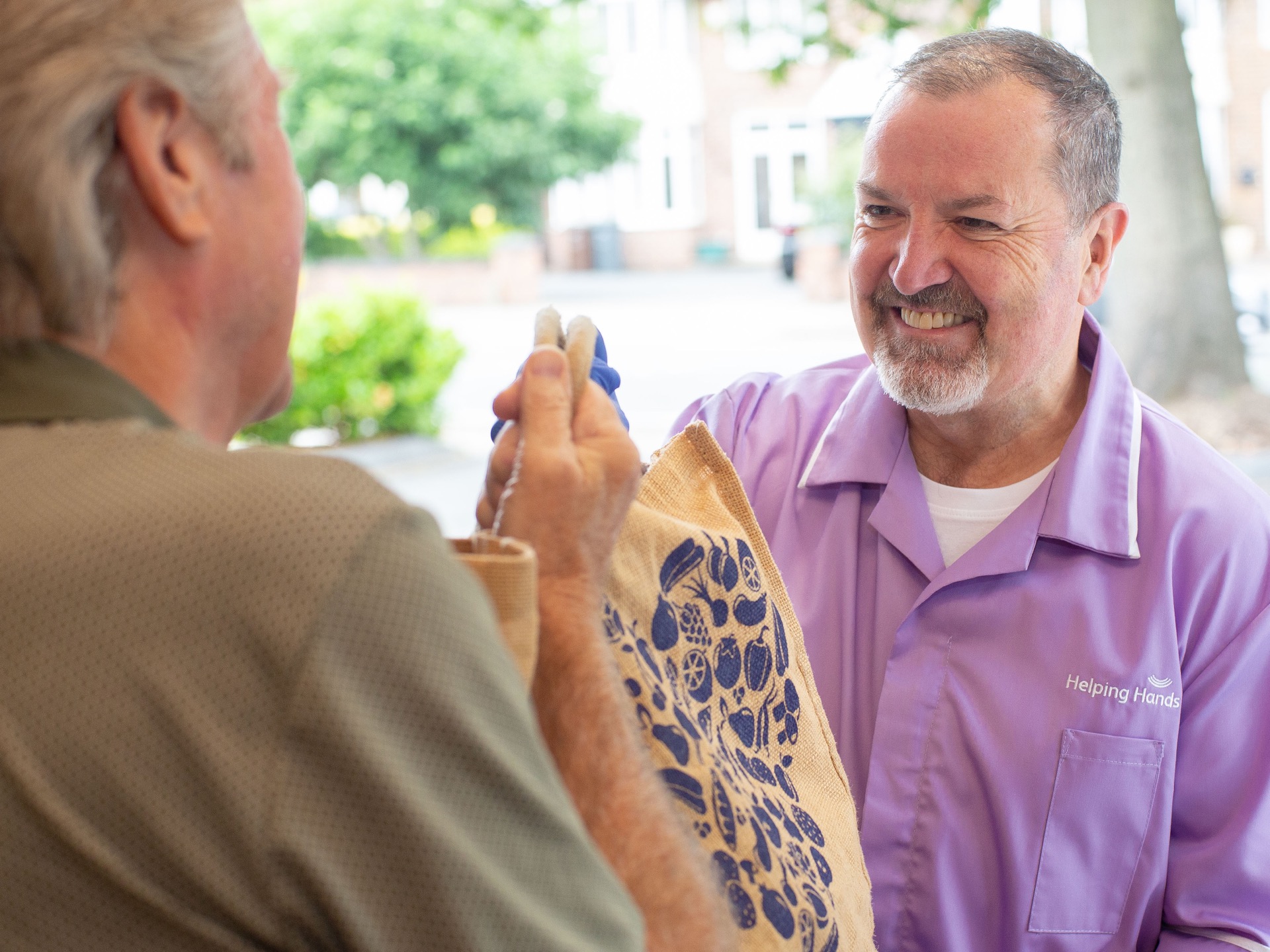Elderly Care Technology

Understanding Elderly Care Technology
Technology is everywhere; we can’t avoid it these days even if we want to! While you may already be familiar with social media apps and other websites, you may be wondering how technology can be brought into care. However, from motion sensors for elderly care to elder care monitoring devices, there are many different ways that technology can be utilised to make people as independent as possible at home, even if they need additional support. According to the Homecare Association, the challenges that the care industry currently faces include “the number of available trained professionals and the physical and emotional toll on caregivers.” And because currently, “the traditional home care system struggles to meet the growing demands of an ageing population” it means that alternative methods of care delivery need to be looked at so that standards remain high. While robots and AI will never take the place of compassionate and empathetic care staff, there is a place for technology in the care industry of the future.

Examples of Elderly Care Technology
There’s no doubt technology can be beneficial at times, after all, how convenient is popping food into a microwave or being awoken by an alarm clock? However, when we talk about technology in the home care industry what are we really saying? Are we suggesting that there will be a robot arm taking our temperature, or an android delivering medication on hospital wards?
One of the ways that elderly care technology is already making a difference is companionship, such as What’s App and Face Time helping separated families to keep in touch. There’s no doubt that we’re living in an “international epidemic of loneliness,” according to Neuroscience News, and that “Artificial Intelligence (AI) technology could offer companionship to lonely people.” The opportunities for communications technology to help the lonely include wearable technology, such as smartwatches, which can help people’s confidence to improve and their social skills benefit accordingly.
Why Use Technology for Elderly Care?
Technology can benefit everyone who is involved in caring for others by reducing the workload for physical carers—especially in the absence of enough high-quality care staff. That technology could be something simple, such as a key safe that lets carers and family members easily enter your home or a mobile phone app that reminds you of important tasks. Speaking to your local authority can help you to understand more about the kind of technology that may be available and that you might benefit from. Other healthcare professionals you’re receiving support from may also be able to help. Despite some people being concerned about technology and its implications, there are potential uses that will benefit the care industry and healthcare in general, as the Homecare Association tells us. “Robotics in home care…will not only help reduce the physical burden on human caregivers but also support the independence and quality of life of care recipients.”

What Effective Elderly Care Technology Looks Like
Telemedicine already exists, where a person can receive a consultation remotely and avoid the need to visit in person. This can be particularly beneficial where a community is very isolated and medical care is not easily available.
“Telepresence robots are revolutionising telemedicine by enabling remote consultations and improving access to care”, says Deeper Insights. “Equipped with cameras, screens, microphones, and real-time communication capabilities, these robots facilitate comprehensive examinations and consultations, bridging the gap between patients and healthcare providers.” This will be helpful for people who are housebound or have restricted mobility to receive comprehensive medical support, regardless of their location.
Choosing the Right Technology for Elderly Care
While there are benefits to technology, any elderly care devices that are used must be subject to the strictest regulation, says Nueroscience News. They tell us that while “AI technology can offer social interaction to combat loneliness”, and that loneliness “increases the risk of premature death by 26% and is linked to various health issues,” regulation is necessary to avoid the risk of over-dependence on AI and robotics. This is because users may end up interacting for longer than is healthy and may become addicted to the technology because it is designed to encourage repeated use. Advice should be sought from a healthcare professional if you are keen to learn more about technology and how it could help you to avoid loneliness or make you more independent. Age Concern also has a lot of information about using technology in later life that may be of help.
How can Helping Hands Help?
Because Helping Hands have been supporting people to live as independently as possible in the home they love since we were established in 1989, we can be trusted as the UK’s home care specialists. We work hard every single day to keep our customers comfortable and safe in their own homes, meaning they don’t have to consider moving into residential care. We offer support on both a visiting and live-in care basis and can help with all your household and personal care tasks, as well as help you to make the most of your local community. We also offer essential companionship care, which can be crucial if you don’t yet have any technology to reduce your loneliness, or you’d just prefer a person instead of a robot! We understand care because we’ve been delivering it to the very highest standards for so many years, and we’re proud to help thousands of people across England and Wales every single day.

Fully regulated by the CQC / CIW
Our carers work incredibly hard every day of the year to ensure that our customers get to live their lives as independently as possible. We’re proud of what they achieve and the differences that they make, and that, twinned with the fact that our services are fully regulated by the Care Quality Commission and the Care Inspectorate Wales make us the home care company of choice. We support our carers to become the very best they can be in their roles, by offering learning development, qualifications and promotions whenever possible. All of this means they are highly motivated, and because we only choose people with natural compassion and kindness to work for us you’ll always be in the very best hands with Helping Hands.